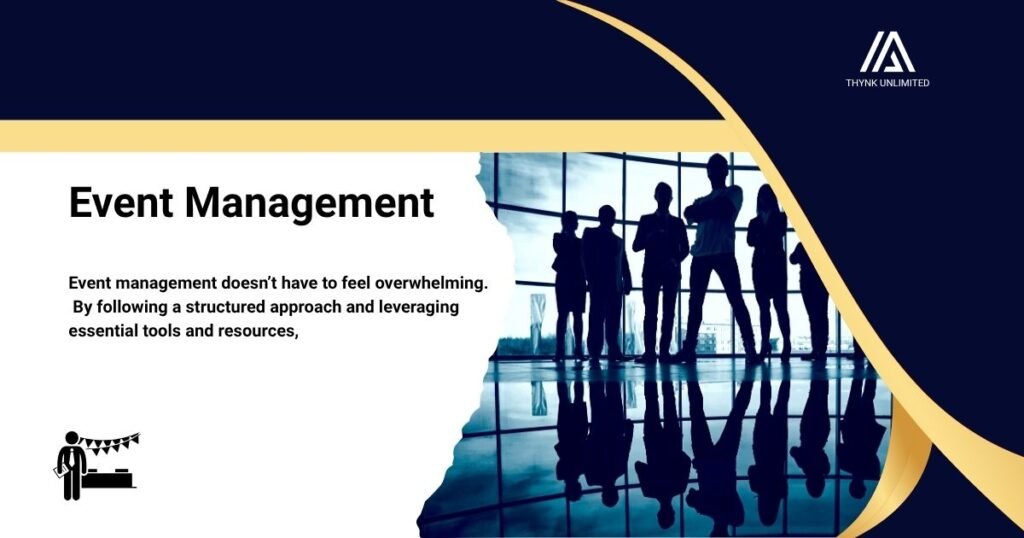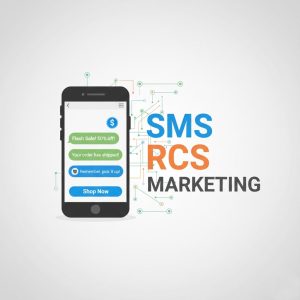Mastering Event Management A Complete Guide to Planning Seamless Events

Event management can often seem like a daunting task. Whether you’re orchestrating a large-scale conference, an intimate wedding, a corporate retreat, or a virtual seminar, the process requires meticulous organization, clear communication, and creative problem-solving. From logistics to aesthetics, every element plays a role in delivering a memorable experience.
If you’re new to planning events or looking to refine your skills, this guide will explore the essentials you need to successfully manage events of any size or type. By the end of this blog, you’ll better understand how to plan, execute, and evaluate events so they run seamlessly.
What is Event Management
Event management refers to the process of planning, coordinating, and executing events. It involves everything from budgeting and venue selection to logistics, marketing, and post-event evaluations. The primary goal is to create a smooth and engaging experience for attendees while meeting the objectives of the host.
Key elements of event management include:
- Defining the purpose and target audience
- Budget planning and cost control
- Venue selection
- Vendor and supplier management
- Marketing and promotions
- On-site management
- Post-event analysis and feedback
Event managers are like conductors, orchestrating every moving part to ensure harmony and a successful outcome.
Steps to Plan and Execute a Successful Event
1. Define Your Event Objectives
Every successful event begins with a clear purpose. Ask yourself:
- What are the goals? (e.g., education, networking, celebration, fundraising)
- Who is the target audience?
- What key message or experience should attendees take away?
Define SMART (Specific, Measurable, Achievable, Relevant, Time-bound) goals. For instance, instead of saying, “We want a great event,” set an objective like, “We aim to attract 300 attendees and achieve a 90% satisfaction rating in post-event surveys.”
2. Set a Realistic Budget
Budgeting ensures you allocate resources effectively and avoid overspending. Break down your budget into categories such as:
- Venue costs
- Catering
- AV equipment and technology
- Marketing and advertising
- Staff and labor
- Decorations and materials
- Permits and insurance
Always have a contingency in place for unforeseen expenses. A general rule is to set aside 10-20% of your budget for unexpected costs.
3. Choose the Right Venue
The venue sets the tone for your event and must align with your objectives. Consider the following when selecting a location:
- Capacity and layout
- Accessibility for attendees (parking, public transport, etc.)
- Availability of essential amenities
- Reputation and suitability for the event type
- Budget considerations
Pro Tip: Visit the venue beforehand to assess its space, lighting, and overall vibe. Pictures can sometimes be deceiving.
4. Develop a Clear Project Timeline
Create a detailed timeline that outlines all activities leading up to the event. Break it down step-by-step with milestones, including deadlines for things like sending invitations, securing vendors, and finalizing the guest list.
Using project management tools like Asana, Trello, or Monday.com can help you stay on track and ensure your team is continually updated.
5. Build a Reliable Team
Unless you’re working on a solo effort, event execution requires teamwork. Roles may include:
- Event coordinator
- Marketing and communications manager
- Logistics or operations specialist
- Volunteer or staff coordinator
- Vendor liaison
Assign responsibilities based on team members’ skills and experience. Create clear lines of communication to ensure everyone is aligned with the event’s objectives.
6. Secure the Right Vendors
From caterers to AV technicians, having reliable vendors is key to a smooth event. Research vendors thoroughly, read reviews, and gather multiple quotes before making decisions. Don’t hesitate to negotiate terms and pricing.
Establish contracts to clarify terms regarding service delivery, timing, and payment.
7. Promote the Event Effectively
Marketing your event is essential for attracting attendees. Tailor your promotional channels to your audience. Key options include:
- Social Media Marketing: Share teaser content, countdowns, and behind-the-scenes moments on platforms like Instagram, LinkedIn, and Twitter.
- Email Campaigns: Send out invitations, reminders, and updates directly to your audience’s inboxes.
- Influencer Endorsements or Partnerships: Collaborate with industry influencers or local figures to generate buzz.
- Traditional Advertising: Leverage flyers, posters, or local radio, especially for community-based events.
Pro Tip: Use an event hashtag to encourage attendees to share their experiences online, extending your reach even further.
8. Finalize Event Day Details
Attention to detail during the event day is critical. Prepare checklists to streamline activities, such as:
- Guest registration and check-in
- On-site technical set-up (audio, visuals, lighting)
- Vendor and supply confirmations
- Signage placement and decor arrangements
- Adequate staffing at high-traffic areas (e.g., snack stations or help desks)
If possible, schedule a run-through or rehearsal beforehand to minimize any surprises.
9. Engage Attendees During the Event
Make your attendees feel seen, heard, and engaged during your event by:
- Providing interactive elements like live Q&A sessions, polling, or networking activities.
- Using engaging speakers and moderators who align with audience interests.
- Ensuring accessibility for individuals with mobility, vision, or hearing impairments.
- Offering swag bags or small giveaways to leave a lasting impression.
10. Conduct Post-Event Analysis
After the event, take time to evaluate its success. Sources of feedback include:
- Post-event surveys
- Social media comments
- Direct feedback from vendors or staff
Analyze key metrics, such as attendee numbers, social media engagement, and performance against set objectives. Compile this data into a report to identify successes and areas to improve for future events.
Benefits of Effective Event Management
When done right, event management offers numerous benefits for organizations, teams, and attendees:
- Improved Brand Visibility: Skillfully executed events can elevate brand awareness and customer trust.
- Enhanced Engagement: Whether through live interactions or encouraging user-generated content online, events inspire deeper connections with audiences.
- Cost Efficiency: Well-organized events that stay within budget generate higher returns and provide value for all stakeholders.
- Team Building: Collaborative event planning strengthens teamwork and coordination within organizations.
Empower Your Next Event to Succeed
Event marketing doesn’t have to feel overwhelming. By following a structured approach and leveraging essential tools and resources, you can craft unforgettable experiences that achieve your business and personal goals.
For more guidance on event planning or to streamline logistics and marketing, check out our recommended digital tools and expert resources for event managers here [Insert call-to-action button or link].





